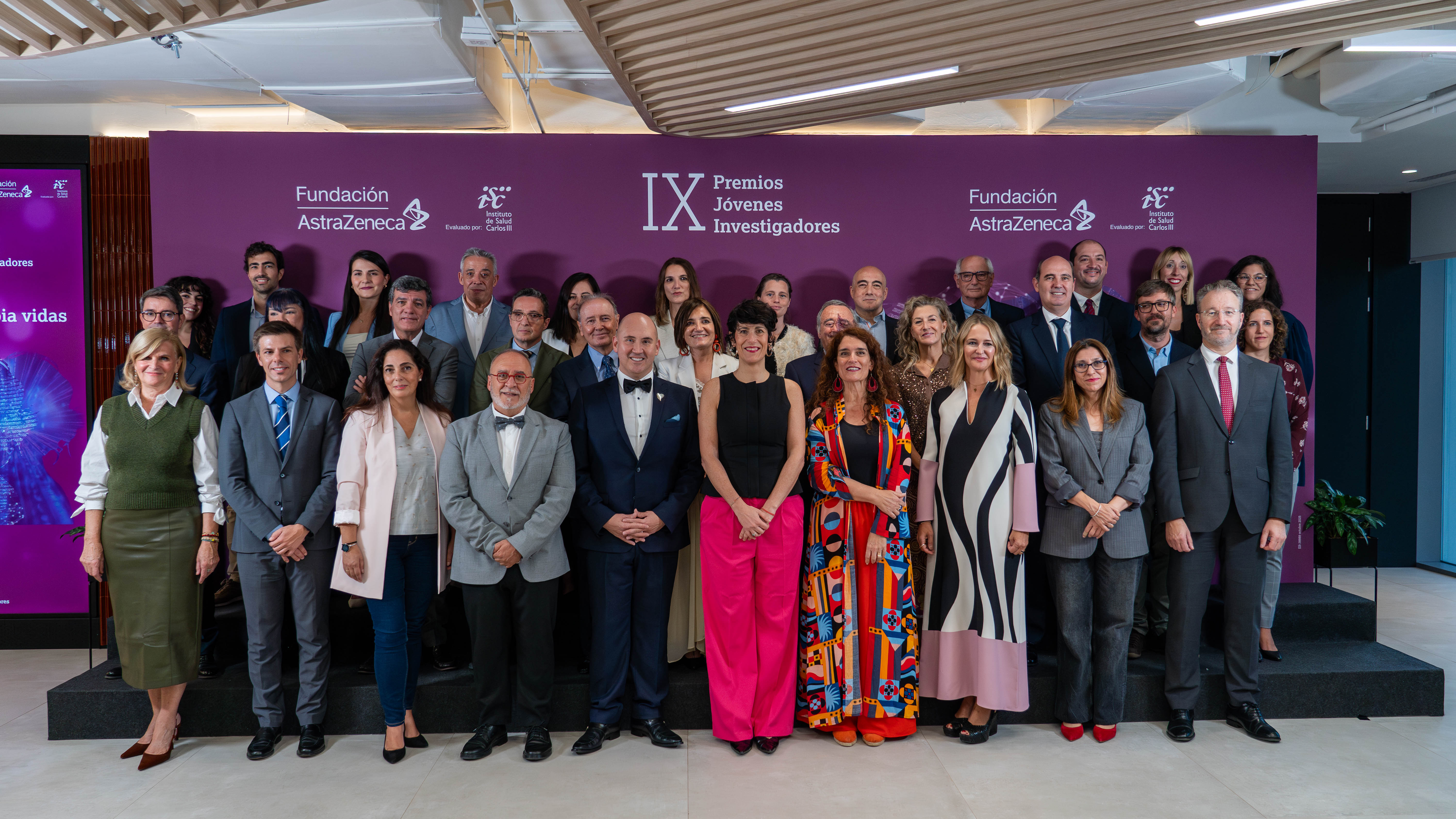Researcher David de Gonzalo, winner of one of the 9th AstraZeneca Foundation Young Researchers Awards
The call aims to promote science among research groups from different autonomous communities
The awards ceremony took place on Thursday, 16 October in Madrid On Thursday, 16 October, the AstraZeneca Foundation awarded €1 million to promote the development and consolidation of young scientific talent in Spain during the 9th Young Researchers Awards ceremony. This ninth edition, held under the slogan 'A vocation that changes lives,' awarded four networked research projects with great potential for real-world application.
Among them was the 'META-omics' project, in which David de Gonzalo Calvo, a researcher from the Translational Research in Respiratory Medicine group at the Lleida Biomedical Research Institute (IRBLleida) / CIBERES, is participating. This project is coordinated by Sara Pischedda from the Genetics, Vaccines and Infectious Diseases Research Group (GENVIP), Population Genetics in Biomedicine Group (GenPoB), Health Research Institute of Santiago de Compostela (IDIS), University of Santiago de Compostela, Santiago de Compostela, and Biomedical Research Network Centre for Respiratory Diseases (CIBER-ES). This research aims to develop early and personalised diagnostic tools from non-invasive samples, a strategy that is particularly important in the paediatric population affected by this respiratory disease.
Eduardo Santamaría Vázquez, from the Biomedical Research Networking Centre - Bioengineering, Biomaterials and Nanomedicine (CIBER-BBN), is also collaborating on the project.
For the fourth consecutive year, the AstraZeneca Foundation has invested one million euros, reinforcing the Foundation's firm commitment to the development and consolidation of young scientific talent in Spain. Each of the four award-winning research groups has received a grant of €225,000 to continue developing their innovative research that helps improve patients' quality of life.
The event was attended by regional authorities, institutional representatives, partners, researchers and members of the scientific community, as well as the Minister for Inclusion, Social Security and Migration, Elma Saiz Delgado, who closed the gala by highlighting that "the AstraZeneca Foundation is an extraordinary example of how public-private collaboration can be a powerful tool for transformation, capable of multiplying the impact of knowledge, connecting territories and bringing innovation closer to patients. Spain is consolidating itself as a country of open, diverse and global science, capable of attracting young talent from all continents. And this is no coincidence. It is because the State, universities, companies and research centres are working together, convinced that investing in knowledge is the best way to protect the future."
In this edition, once again, the Carlos III Health Institute (ISCIII) has been in charge of evaluating the projects submitted as a public research body under the Ministry of Science, Innovation and Universities. In addition, this year, as in the previous edition, projects were able to submit a letter of support issued by a patient association, an aspect that was positively evaluated when selecting the winning projects.
Consolidation of these awards with an 85% increase in nominations over the last three years
This ninth edition of the Young Researchers Awards has achieved a new record in participation, involving more than 200 research groups from 16 autonomous communities in Spain. In addition, the volume of applications submitted in the last three years has grown by 85%, data that supports the consolidation of these Awards, which promote research and scientific talent, encouraging the development of research projects in different fields.

The awards ceremony took place on Thursday, 16 October in Madrid.






